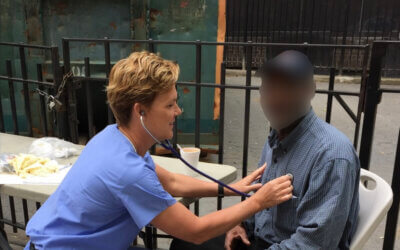Caring for Caregivers: Lessons for the Sandwich Generation
Who cares for sandwich generation caregivers? Unfortunately the answer is no one.

In yesterday’s blog post titled “Sandwich Generation Explained: Caught in the Middle,” we started at the ground floor and sketched out exactly what the title states. Today we tackle the issue of caring for caregivers because as responsibilities for the sandwich generation increase, stress invariably stakes a claim and camps out in their lives.
What Do Caregivers Need Most?
Unfortunately, the answer to the question of who cares for sandwich generation caregivers is no one. The majority of caregivers work full time and try to balance career obligations with the care they must provide to their children, parents and even grandparents.
What happens one day when disaster strikes? Here’s a possible scenario to contemplate to truly grasp what life can be like for a sandwich generation caregiver.
The said caregiver is about to give a presentation to the C-suite, and he or she gets two calls in the span of hours. A parent is rushed to the hospital and school calls to say that Diana is running a 101o fever and complaining of a sore throat. How does the sandwich generation caregiver juggle these familial obligations? On the outside looking in, one might think a hospitalization might provide a respite from career responsibilities but alas the stress of having a parent in the hospital offsets any ease.
There are many problems that caregivers face, not just sandwich generation members. According to the American Psychological Association, the most common problems plaguing caregivers fall into two main categories: health and mental health.
For health, caregivers’ concerns are:
- Sleep problems
- Fatigue
- Risk for illness, injury and even death
On the mental health side, caregivers often experience:
- Anxiety
- Depression
- Stress
- Range of battling emotions, such as guilt, sadness, worry and dread
What Can Help Caregivers?
In helping caregivers, it is all about communication and listening to his or her needs and wants. Some caregivers might desire intermittent times of solitude and space. Or perhaps adult time would help ease stress. And don’t discount something as simple as appreciation from both generations — from rebellious teenager to curmudgeon father and everything in between.
The following are some possible solutions that can ease the stress on caregivers:
- Weekly family meetings
- Clarification of house rules
- Preparing a financial plan
- Professional counseling
What Are Three Methods of Providing Care for the Caregivers?
However, one of the most important tips for caregivers would be to take care of themselves. If the caregiver is not well, physically or emotionally, how can he or she care for either end of the generational spectrum they help?
Here are three easy steps for caregivers to follow that can prove beneficial:
- Eat a well-balanced diet: Following the food pyramid is easy. Make half your grains whole, vary your vegetables, focus on fruits, consume calcium-rich foods, go lean with protein and know your limits on fat, sugar and salt. And don’t forget to keep well hydrated. Learn more from the United State Department of Agriculture (USDA) and its updated food pyramid, MyPyramid.
- Exercise regularly: As the American Heart Association recommends for overall health, try to performing 30 minutes of brisk cardiovascular activity, five times a week. In addition, numerous studies prove that regular exercise reduces anxiety, depression and tension.
- Find a stress buster: If you like to write, journaling allows you to express feelings. Hobbies like drawing, sewing, painting, knitting and reading are also great ways to relieve stress. And don’t discount heading out to the courts for a round of tennis or to the greens for a round of golf if that’s your cup of tea.
![Caring for caregivers]()
Additionally, it is important for sandwich generation caregivers to know their limits, set boundaries, ask for help, not allow guilt to rule and always have contingency plans.
Being sandwich generation caregivers is not all doom and gloom. There are a number of benefits to taking care of children, parents and grandparents. Individuals in the middle of the sandwich have a great sense of belonging and family well-being. And when caregiving is shared, the burden is eased for each family member.
Chapters Health System is committed to serving the needs of its patients, families, caregivers, health providers, partners and communities.
For more information, please call our helpful Chapters Health and HospiceHelp24® team at 1.866.204.8611 or Contact Us.
Quick Links
Keep Exploring

















